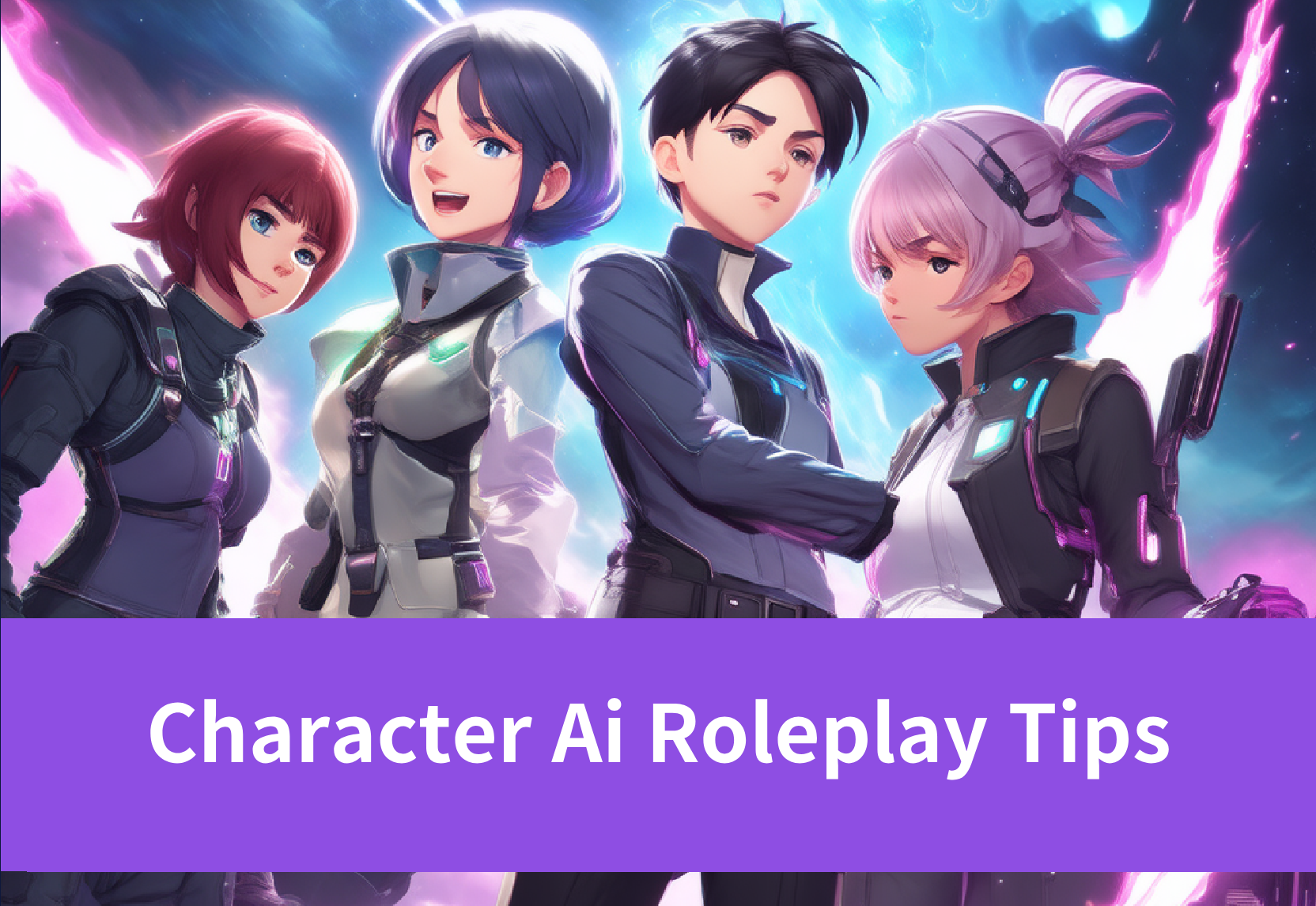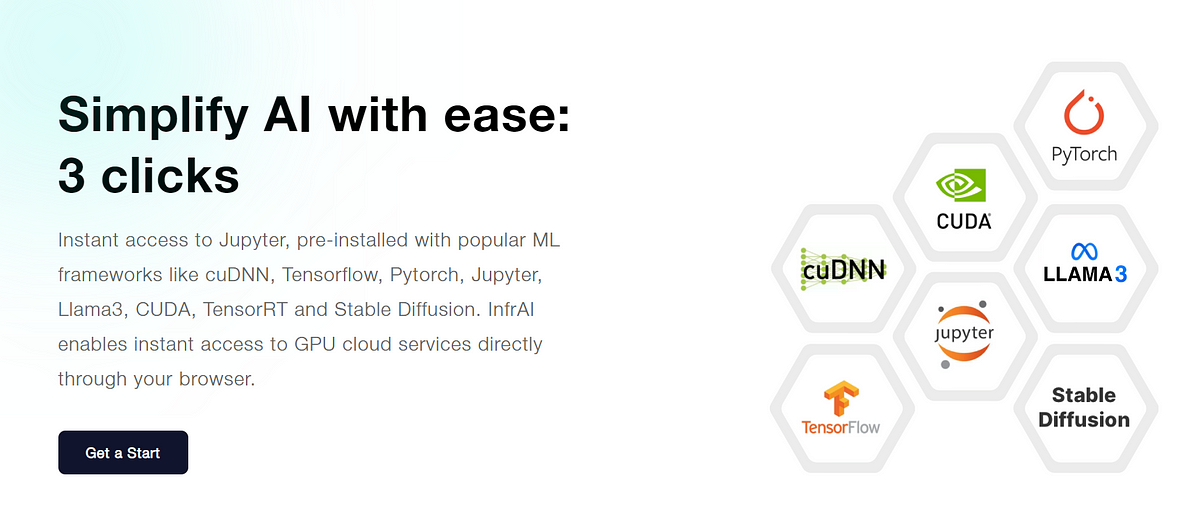Character AI Roleplay Tips: Unlocking Success with GPU Pods

Key Highlights
- Character AI is a powerful tool that allows users to have engaging conversations with bots that act like real humans.
- By following these tips, you master character AI role and have immersive and enjoyable.
- Tips include your character’s backstory motivations, establishing a clear voice personality for your AI utilizing visual and textual for deeper immersion, engaging in consistent sessions etc. Furthermore, this text also emphasize the use of GPU. GPU Pods will be a better chouce for developers to make or train their best AI Roleplay Character.
Introduction
Character AI allows users to engage in lifelike conversations with AI bots, offering diverse experiences from learning to roleplay scenarios. Master character AI roleplay with tips for developers and users on defining character backstory, using visual cues, and engaging in consistent practice for improvement. Share experiences, stay updated on AI developments, and unleash creativity for memorable interactions.

What is character AI roleplay?
Character AI roleplay refers to the use of artificial intelligence technology to create and control characters in a roleplaying scenario. Character AI roleplay takes roleplaying to a new level by incorporating artificial intelligence to create immersive and dynamic experiences. Unlike traditional roleplaying games where players interact with each other or a predetermined storyline, character AI roleplay introduces AI-driven characters that respond and interact with players in real-time, creating a more engaging and personalized experience.
Features of Character AI Roleplay
Extensive Character Library
By signing up for Character AI, you gain access to thousands of user-generated chatbots. While not every chatbot may be a standout, the vast selection available is a significant advantage.
Realistic and Dynamic Responses
Powered by advanced LLM technology, Character AI provides lifelike and dynamic responses from its characters. This makes conversations feel more natural and engaging, making it an excellent tool for language learning.
Interactive Roleplays
Character AI allows you to create interactive roleplays with your characters, offering a fun and engaging way to practice speaking and listening skills.
Top Tips for Mastering Character AI Roleplay
Mastering character AI roleplay requires a combination of creativity, practice, and understanding of the AI’s capabilities. Here are the top tips to help you excel in character AI roleplay:
1. Define Your Character’s Backstory and Motivations
Successful character AI roleplay requires defining your character’s backstory and motivations. This shapes your interactions with the AI bot, adding depth to your roleplay. Consider past experiences, traits, and goals to engage authentically and enhance immersion and enjoyment.
2. Establish a Clear Voice and Personality for Your AI
In AI character roleplay, defining a clear voice and personality is crucial. This brings your AI to life and enhances engagement. Consider how they speak, their tone, and mannerisms. Define if they are formal or casual, their phrases, and expressions. Establishing a unique voice makes conversations feel authentic.
Defining the personality is also important. Think about their quirks, interests, and values. This shapes their responses and adds depth to roleplay sessions.

Creating a clear voice and personality for your AI character enriches the roleplay experience and improves interactions with the AI bot.
3. Utilize Visual and Textual Cues for Deeper Immersion
To enhance character immersion in AI roleplay, utilize visual and textual cues. Tips for effective use:
- Use descriptive language for environments and characters.
- Include actions with symbols like asterisks.
- Create visually appealing character descriptions.
- Use formatting (italics, bold) for emphasis.
By using these cues, you can create a lifelike and engaging AI roleplay experience.
4. Engage in Consistent Practice Sessions
Consistent practice is essential for mastering character AI roleplay. Set aside time for practice to refine your skills and understand the AI better.
Experiment with various scenarios and characters during sessions to boost your comfort level and create authentic interactions. Pay attention to the AI’s responses, try different prompts, and dialogue options to fine-tune your techniques.
Regular practice not only enhances your roleplay skills but also helps you explore the full potential of character AI for immersive experiences.
5. Optimize GPU Performance with Novita AI GPU Pods
Enhance your AI roleplay experience by optimizing GPU performance with Novita AI GPU Pods . These powerful GPUs ensure smooth graphics, fast real-time responses, and scalability for complex scenarios. By leveraging Novita AI GPU Pods, you can enjoy seamless, immersive interactions with AI characters, future-proofing your setup for ongoing advancements. For more details, join the community.

6. Explore Complex Scenarios to Test AI Responses
To push character AI roleplay boundaries, explore complex scenarios. Test the AI’s responses in various situations to gauge its adaptability and engagement.
Experiment with dialogue options and prompts to understand limitations and strengths. This enhances roleplay experiences.
Exploring intricate scenarios unlocks character AI’s full potential for captivating roleplay sessions.
7. Leverage AI’s Learning Capabilities to Enhance Roleplay
Character AI’s advanced learning capabilities can enhance your roleplay experiences. By engaging with the AI bot and providing feedback, you help it improve responses and adapt to scenarios. Experiment with various dialogue options to expand the AI’s knowledge and improve understanding of different topics. This will result in more accurate and contextually relevant responses, creating immersive roleplay interactions that feel lifelike.
8. Stay Updated on Latest AI Developments and Tools
Character AI is a rapidly evolving field. Stay updated on the latest developments by following news, blogs, and research papers. Explore new AI tools to enhance roleplay experiences. Attend webinars or conferences to gain insights from experts and deepen your understanding of character AI for roleplay. Embrace new technologies to stay at the forefront of character AI and improve your skills continuously.

9. Embrace Creativity and Innovation in Roleplay Scenarios
Creativity and innovation are essential for engaging character AI roleplay. Explore various themes, settings, and dynamics to craft captivating experiences. Incorporate surprise, suspense, or humor for an interesting interaction.
Take risks and think outside the box in your roleplay sessions. Push boundaries to create exciting experiences that captivate both you and the AI bot. Character AI is a versatile tool that can bring your ideas to life. Embrace creativity to unlock its full potential and create unforgettable interactions.
Ethical Considerations
Privacy and Consent
One of the primary ethical concerns is obtaining informed consent from the individuals involved in the roleplay. Since character AI can generate responses that mimic human interactions, it’s crucial to ensure that all participants are aware of and consent to their participation in the roleplay. This includes obtaining consent for the collection and use of personal information, such as names, preferences, or any sensitive details shared during the roleplay.
Misinformation and Bias
Character AI systems are trained on vast amounts of data, which can introduce biases or inaccuracies into their responses. It’s essential to be mindful of the potential for misinformation or biased responses, especially when discussing sensitive topics such as politics, religion, or personal beliefs. Users should critically evaluate the information provided by character AI and verify it through reputable sources.
Emotional Manipulation
Character AI can generate emotionally engaging responses, which raises concerns about emotional manipulation. Users may develop emotional attachments to the AI characters, making it challenging to distinguish between real human interactions and AI-generated responses. This can lead to users experiencing emotional distress or feeling deceived if they discover the true nature of their interactions.
Conclusion
Mastering character AI roleplay requires dedication, creativity, and continuous learning. By defining your character’s backstory, establishing a clear voice, and utilizing immersive cues, you can enhance the AI experience. Consistent practice, feedback loops, and exploring complex scenarios are crucial for improvement. Sharing insights with the community and staying updated on AI developments are key. Embrace creativity and innovation in roleplay scenarios to push boundaries. With these tips, you can excel in character AI roleplay and create engaging experiences for yourself and others. Let your imagination and AI capabilities blend seamlessly for an enriching roleplay journey.
Frequently Asked Questions:
Are there specific tools or software used for character AI roleplay?
Certainly! Character AI roleplay involves simulating conversations with fictional characters or personas using artificial intelligence. For example, Character.AI, AI Dungeon, NovelAI and so on.
Can character AI roleplay be used in tabletop roleplaying games?
Character AI roleplay can indeed be used in tabletop roleplaying games, offering a unique and dynamic way to enhance the gaming experience. Here’s how you can incorporate character AI roleplay into your tabletop sessions: Creating Non-Player Characters (NPCs), Enhancing Storylines, Facilitating Collaborative Storytelling, Streamlining Game Mastering and Providing Real-Time Feedback.
Novita AI, the one-stop platform for limitless creativity that gives you access to 100+ APIs. From image generation and language processing to audio enhancement and video manipulation, cheap pay-as-you-go, it frees you from GPU maintenance hassles while building your own products. Try it for free.
Recommended reading